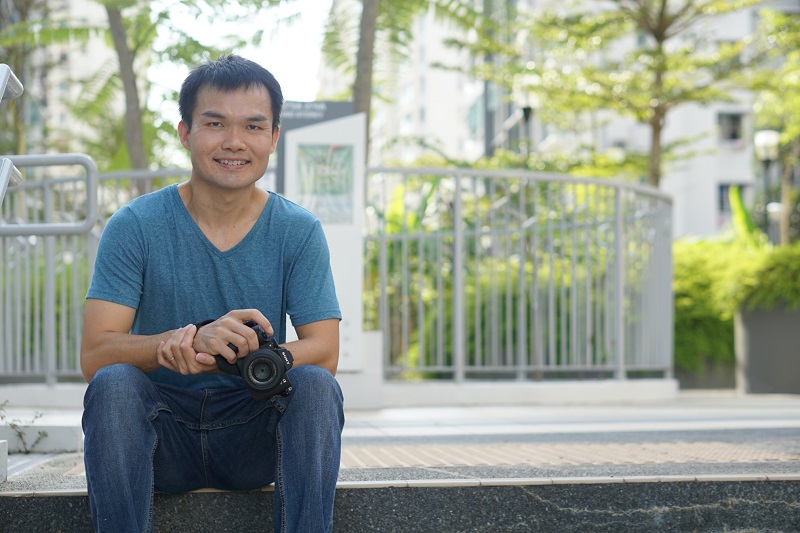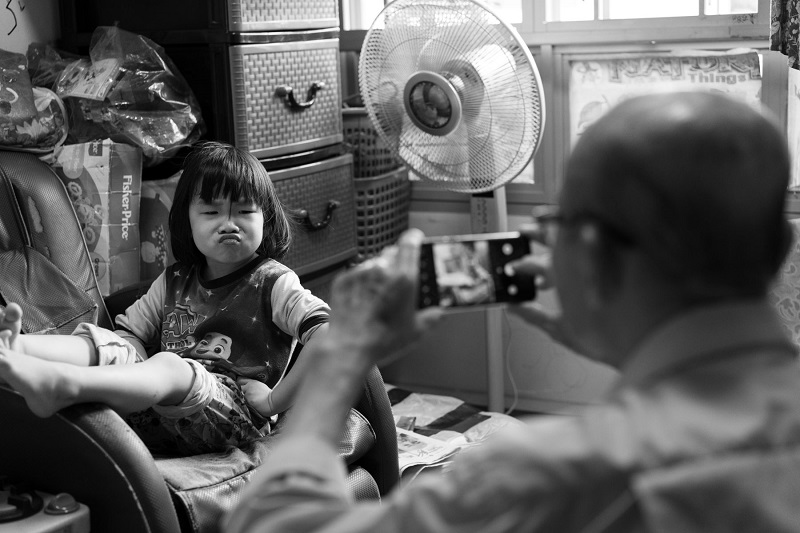Families For Life | fostering-multi-generational-bonds
Tan Chin Hock shares his thoughts with Families for Life after the CNA938 interview on fostering multi-generational bonds with DJ Host, Susan Ng and Mr Albert Lim, Families for Life Council Member.

Image source: Tan Chin Hock
When it comes to the differences in parenting style, any topic ranging from the children’s diet to the choice of TV programme can ignite a fierce quarrel if one is not careful with his/her words and tone of speech, Chin Hock observes.
The advocate for strong families shared: “I made the decision to ask my parents to stay with me long before I got my BTO flat in 2010. We were married and without children then. As the eldest son, I look at it as a natural responsibility to look after them. I also love them dearly and would like to take better care of them during their silver years.”
Looking back in retrospect, Chin Hock cited the following benefits of having the grandparents in a family structure:
• Grandchildren are close with their grandparents which provides an additional layer of emotional support from a close family member. He recalled "My eldest daughter, who was three at the time, woke up from her sleep at 3am and asked for her grandfather. Nothing extraordinary except that we were on a cruise. She kept insisting to ask the captain to turn the ship around because she wanted to go home to the grandfather. Finding the episode both amusing and heart-warming, he had to spend an hour to coax her including a promise of a phone call to the grandfather the next morning, before the girl would finally return to sleep.
• Grandchildren could pick up values and traits from the grandparents that weren’t necessary taught by the parents – Chin Hock took after his grandfather’s athletic trait as the image of the elderly lifting up dumbbells after waking up in the morning inspired him greatly that he even took up basketball and table tennis – both sports that were also played by his grandfather.
• Grandchildren have a chance to experience the rich family heritage and help them better relate to their roots E.g. Chin Hock’s children picked up the dialect, Hokkien, and also learn more about traditions such as lantern festival, dumpling festival that were often driven by the grandparents.
• Parents could also be rest assured that the children are looked after by capable and caring hands when they were away for other commitments.

Image source: Tan Chin Hock
He shared that it’s not all a bed of roses when closeness, on top of familiarity, breeds friction. As a son, husband and father, he has to take on additional responsibilities not only to provide for the family, honour his parents, be sensitive to the spouse’s need and create a safe and nurturing environment for the children.
But it’s easier said than done. He recalled in a few out-of-control situations where he yelled at his wife and demanded her to give in to his mother. On the other hand, he had also showed total disrespect to his mother by shutting her out during those extended exchanges with his wife.
Deeply remorseful for his actions, he reflected and apologised for his unruly behaviour the next day. He quipped that thankfully he was blessed to receive forgiveness from both his wife and mother.
If he were to sum it up, he shared that the one thing that he learnt during the decade long of multi-generational living is that we need to measure the words and tone of speech when communicating differences across the receiving parties.
When it comes to inculcating the importance of multigenerational bonds, one has to start from young. Intentionally creating that interaction between the grandparents and grandchildren is key to foster the multigenerational bonds. Parents can share with their children snippets about their own relationship with their grandparents. E.g. I would share with my children stories of how I was influenced by their grandparents, like my love for honeydew and papaya was developed when I saw how my mother repeatedly and delightfully savour those fruits in front of me when I was young. I cultivated a habit of thriftiness, thanks to my father. As we need to pay for the TV renewal licence fees every year, he would constantly remind me and the siblings to put our loose change into the milo tin can, no matter how small the sum could be.
Other ways of fostering the multi-generational bonds for consideration:
• Encouraging play time among the grandchildren and grandparents e.g. card games like UNO, Chess, Five stones etc..
• Getting the grandchildren to do well wishes cards on special occasions such as Birthdays, Grandparents’ Day, Christmas, Chinese Lunar New Year etc..
• Assigning meaningful roles to the grandparents to help them feel involved in the parenting journey e.g. preparing the meals for the grandchildren, teaching spelling and dictation etc..
• Getting the grandchildren to teach the elderly to use virtual communication tools such as Skype, Whatsapp, Zoom that could help to facilitate communication between them.
And if we are not living with the grandparents, we could consider institutionalising family meal times or schedule family virtual calls with one another as advised by Albert Lim.
Sometimes what is needed are not big sweeping gestures but the small things like spending time with them, visiting them with their favourite food if they live elsewhere, or providing that space and time for the elderly to interact with their grandchildren. It does not take a lot actually, it just requires a re-prioritisation of our time and a mindset shift.
Reflecting on how the family was affected by the COVID-19 pandemic, he soberly shared that there were many highs and lows in the family’s life. One of the positive things arising from the pandemic and especially the Circuit Breaker, is the spotlight on the importance of family support and unity. He put together a photobook of how his family adapted to the circuit breaker titled ‘Memories Of The Circuit Breaker’ in the hope that his family members would remember these precious memories. He also hopes that the photographs would inspire readers to reflect upon their familial relationships and set them thinking about the memories that they too, could create with their family.
Chin Hock is gifting the photobook to any donor who donates $50 or more via the fundraising campaign. All proceeds go to St Luke’s Hospital, a charity hospital where most patients are elderly. (Closed as of 2023.)
Learn more about Our FFL Contributor Tan Chin Hock:
Tan Chin Hock is a bit of an adrenaline junkie - a former commando, no less! He is dedicated to empowering and advocating for strong families. With his passion for self-care and healthy living, he leads by example and encourages others to prioritize their family relationships. Through his social enterprise, he aims to inspire and uplift the less resourced communities through photography. Join Chin Hock as he combines his unique experiences and unwavering commitment to promote the importance of strong families and making a positive impact in today's world.
Social Media Links:
https://www.tiktok.com/@tanchinhocksg